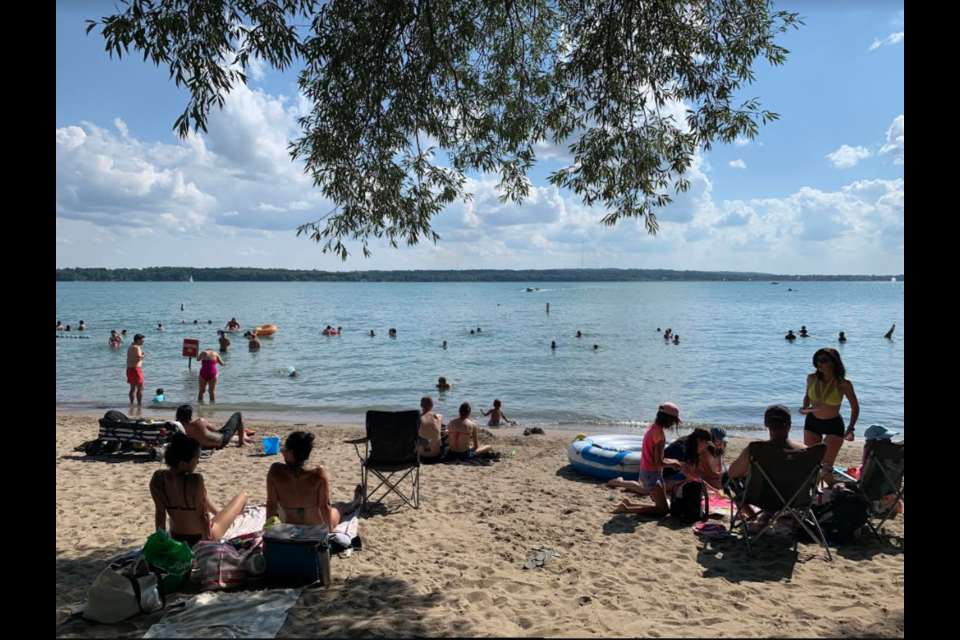Barrie’s challenge now is turning its tourism master plan from document into action.
City councillors will consider a motion tonight to receive the plan's implementation program and have staff report back on its progress as part of performance measurement and budgeting.
The tourism master plan was approved by council, in principle, in November 2020, but the pandemic has stalled its progress.
The implementation plan contains several key recommendations, including a specific sport tourism strategy and investing in cultural and live events, such as theatre, music and festivals.
“Sport-tourism will be guiding the recovery,” said Kathleen Trainor, Tourism Barrie’s executive director. “It’s one of the recommendations we should do, earlier rather than later.
“We fare well because we’re a drive-to city. You drive here; you don’t come in by airplane like Toronto and Ottawa,” she added. “Eight million people live in the GTA (Greater Toronto Area), and we’re part of that.”
The tourism master plan recommends a specific sport-tourism strategy, noting the current mix of sport facilities in Barrie provides a good base for community use and some provincial competitions. It also recommends investing in the further development of year-round outdoor assets for experiences such as nature and hiking trails, parks, cycling, and snow-related events.
The implementation plan also recommends establishing a tourism position within the city to work jointly with Tourism Barrie, to integrate strategic tourism with internal functions — including arts and culture development, special events, recreation, etc.
Another recommendation is that all of the Municipal Accommodation Tax (MAT) revenue goes toward tourism, with half to Tourism Barrie and half to the creation of a Barrie tourism development fund.
The MAT is a four per cent levy on room rates at hotels, motels and AirBnBs. Total MAT revenues for hotels and AirBnBs were $1.2 million in 2019, but dropped to almost $665,000 in 2020 and were nearly $250,000 from January to June in 2021.
Councillors will also consider a motion Monday night that Tourism Barrie continue to be the collection agent, on behalf of the City of Barrie, as the city’s ‘tourism entity’ to receive 50 per cent of the MAT for a two-year period, expiring on Oct. 31, 2023, with an option to extend for a further two years to Oct. 31, 2025, subject to council approval.
The annual administrative fee provided to Tourism Barrie to collect the MAT would be a flat rate fee of $35,000 annually, rather than a two per cent MAT administration service fee capped at $25,000.
Revitalizing Barrie’s downtown remains a key component of the tourism sector, according to city staff. Tourism will grow organically through continued focus on downtown development, resulting in more residents living and investing in the downtown.
But there remain challenges, especially with certain types of visitors to Barrie.
“You come to the beaches, you bring your own food. We don’t consider that a tourist, because there’s no economic impact,” Trainor said. “It’s Tourism Barrie’s responsibility to try to develop different programs to get people off the beaches, and into the downtown and animate your waterfront. Uses of the waterfront integrate with tourism. They call it animating the waterfront.
“Barrie has very limited animation of its waterfront, meaning that there’s nowhere for anyone to buy anything, there’s no food,” she added. “You’ve got to move them into the downtown. That’s still two kilometres away and most people won’t walk that far.
“What do you sell on your waterfront so you have an economic impact on the tourists arriving?”
There is a steady flow of visitor traffic throughout this area. However, the tourism master plan illustrates that much of the traffic flows through Barrie on its way to regional destinations, rather than stopping and staying overnight in Barrie.
Trainor questions this finding, saying that pre-COVID Barrie had a 68 per cent occupancy in its hotels, motels, etc. — above the provincial average and a mix of 50 per cent corporate, 30 per cent leisure and 20 per cent for sport-tourism.
“That’s actually a very good mix,” she said. “We’re hoping that by 2023, early 2024 we're back to those pre-COVID levels. We do have a healthy overnight stay.”
Trainor noted 2020 numbers are down 28 per cent due to COVID.
The tourism master plan is designed to leverage and support the growth of existing tourism in this area, integrate sports, nature and business tourism, and provide direction on growing the sector overall. It also identifies specific strategies on how tourism could support the city’s economic development objectives, including the attraction and retention of talent and investment, diversifying economic sectors, and growing creative industries and knowledge-based sectors.
Also called the visitor economy, tourism includes all overnight and day visitors to a destination from leisure, business and sports segments, as well as the activities and expenditures involved in supplying products and services for these visitors by both the private and public sectors — transportation, food service, attractions, events, and retail.
The tourism master plan was created following a series of meetings and visits with more than 80 key stakeholders. Tourism Barrie was part of the plan’s steering committee, which also included the Barrie Hotel Association, the Downtown BIA and city parks and recreation department staff.



